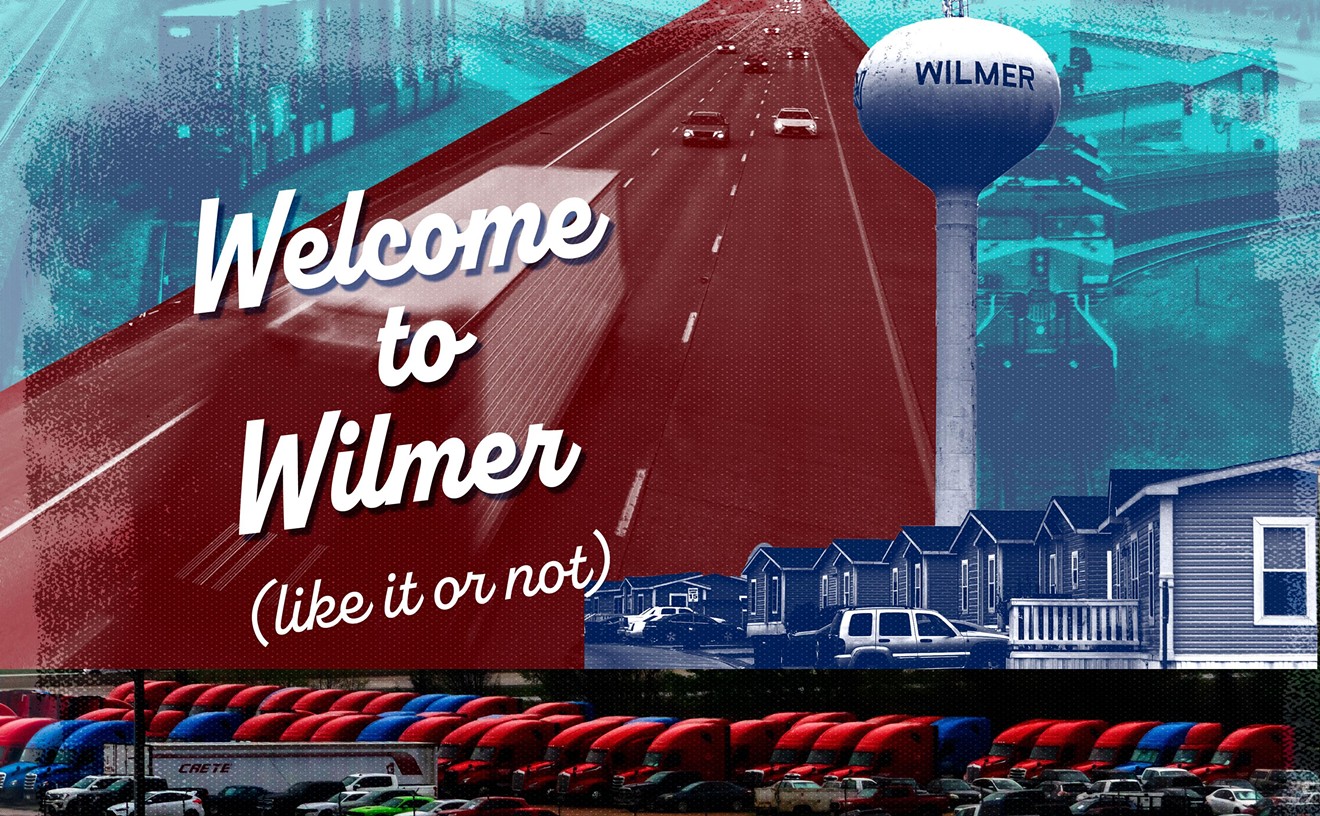This morning marked a turning point in the local approach to homeless care. Mayor Mike Rawlings, city and county officials and leaders of local non-profits took turns at the podium in the Flag Room at City Hall in an introduction to the Greater Dallas Homeless Policy Alliance, a public-private partnership aimed at ending homelessness.
"We're going to talk about something near and dear to my heart," Rawlings told the crowd packed with officials, including county commissioner Elba Garcia, Judge John Creuzot, MDHA chairman George Ellis and President and CEO of The Bridge Jay Dunn.
Mike Faenza, president and CEO of the Metro Dallas Homeless Alliance (MDHA), complimented the mayor on his dedication to ending homelessness, and gave a run-down of the regional status of homeless affairs. He focused mainly on the issue of permanent supportive housing for people coping with mental illness or recovering from addiction.
We've come a long way, but there's more work ahead, he said, stressing that 2,000 supportive housing units will have been created by the end of this year. It's the aim of MDHA to create 1,800 more units by 2015, with the ultimate (if pie-in-the-sky) goal of ending homelessness in Dallas.
A "big challenge," Faenza said, is that the number of people experiencing homelessness continues to rise -- 31 percent of those counted as homeless in a recent census became homeless only in the past year. He also introduced the MDHA's state of homeless report, which Unfair Park posted first thing this morning.
Creuzot offered his perspective on the problem. "The place where it all comes to a head," he said, "is at the courthouse, and we know that putting someone back in jail is not the solution. ... The reality is we need to look for solutions for the underlying reasons and problems."
These solutions, according to several who spoke at the press conference, are rooted in supportive housing. Ellis said that not only is it a benefit for the community, it's a huge financial savings. "The money that we can save by putting those people in homes is also amazing," he said. "As a citizen, it's the right thing to do," and from an economic standpoint, "it's the only thing to do," he said.
"Eighteen hundred's a drop in the bucket," city council member and Alliance chair Jerry Allen said of the widespread need for supportive housing. "If we do this right, and we will do this right ... this whole metroplex will be the flashlight leading the way for the rest of America," he said. "Public-private cooperation -- that's the key. ... It's crucial that we have consistency [among providers of care]."
Until last month, The Bridge homeless shelter, lauded by speakers as an indispensable part of local homeless care, was a subsidiary of MDHA. Now, the two organizations have split, meaning that The Bridge is a member of the MDHA instead of a program directly linked to the organization. The distinction leaves MDHA more freedom to focus on a regional approach to ending homelessness while others concentrate on running the facility.
"There's a real scarcity of homeless services," Faenza told Unfair Park. There's not even an emergency shelter in Collin County, he added.
The split between MDHA and The Bridge was amicable, according to both Faenza and Dunn.
"We're hopefully just freeing ourselves up to do what we're good at," Dunn said. The Bridge provides emergency housing and services to those who need it, better positioning people for success if they transition into permanent supportive housing, which tops Faenza's agenda. "Housing is ultimately what ends homelessness," Dunn said.










